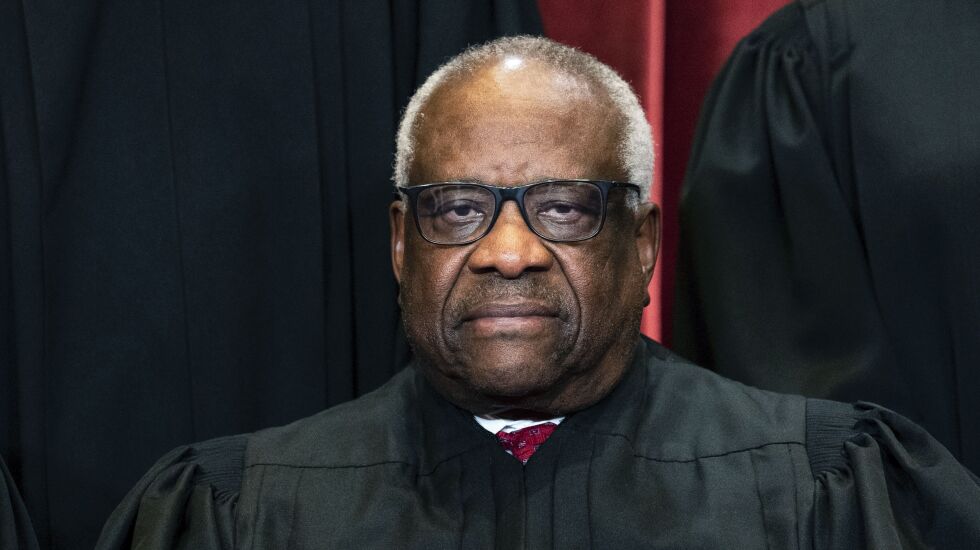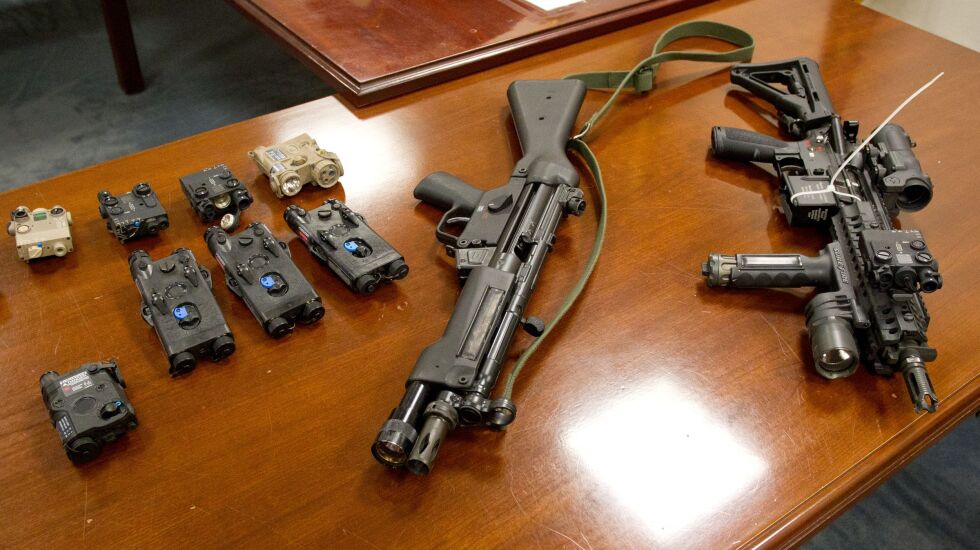
Chicago’s little-known ban on possessing laser gun sights is coming under new court scrutiny after the U.S. Supreme Court’s recent decision striking down a key provision of a New York concealed-carry law.
U.S. District Judge Robert Dow Jr. has asked lawyers involved in a Chicago gun-rights lawsuit to offer arguments on whether last month’s Supreme Court ruling applies to city ordinances that prohibit the possession of laser sights for firearms in Chicago.
Dow has given the lawyers until mid-July to respond in the case, Second Amendment Arms v. Chicago, which was filed in 2010 by a gun dealer in an effort overturn the city’s ban on gun stores operating in Chicago.
In a separate case, another federal judge in Chicago struck down that gun-store ban in 2014.
Because the ban was overturned, Dow ruled that Second Amendment Arms wasn’t entitled to compensatory damages from City Hall.
But the judge still is deciding another issue in the case: whether Chicago’s separate laser-sight ban is constitutional.
On Monday, he wrote that “the court is particularly interested in whether the parties believe that the Supreme Court’s framework impacts the analysis and/or result on the laser-sight issue.”
On June 23, in the case New York State Rifle & Pistol Association Inc. v. Bruen, the Supreme Court voted 6-3 to overturn a regulation that prevented people in New York from getting concealed-carry licenses unless they could show they have a special need.
Justice Clarence Thomas, in the majority opinion in the New York case, wrote: “To justify a firearm regulation the government must demonstrate that the regulation is consistent with the nation’s historical tradition of firearm regulation.
“In District of Columbia v. Heller and McDonald v. Chicago we recognized that the Second and Fourteenth Amendments protect the right of an ordinary, law-abiding citizen to possess a handgun in the home for self-defense,” Thomas wrote. “We . . . now hold, consistent with Heller and McDonald, that the Second and Fourteenth Amendments protect an individual’s right to carry a handgun for self-defense outside the home.”
In the McDonald case, the Supreme Court had ruled in 2010 that Chicago’s ban on handguns violated the Second Amendment right to bear arms.

A key legal question remaining in the current Chicago gun case is whether the right to “bear arms” extends to laser sights.
David Sigale, a lawyer representing Second Amendment Arms, argues that it does. He said metal sights have been used on guns for hundreds of years and that laser sights are just an improvement of an old fixture on guns.
“Does the First Amendment protect quill pens but not the Internet?” said Sigale, who is representing Joseph Franzese, the owner of Second Amendment Arms.
Franzese had operated a gun store in Lake Villa from 2009 to 2013 and said he lost millions of dollars in potential revenue by not being allowed to open a gun store in Chicago. Had he been allowed to sell guns in Chicago, he also would have sold laser sights, Franzese said.
“They are useful for improving aim and also for intimidation that can defuse the need to actually fire a firearm,” Franzese said in a 2019 court filing in which he said he had them on his own guns.
Sigale wouldn’t comment on why no one including Franzese has opened a gun store in Chicago since the city’s ban on them was overturned.
Even with that ruling, it wouldn’t be easy for a gun store to open in Chicago. A would-be owner would have to navigate a maze of regulations and zoning restrictions that City Hall has put in place.
On the issue of laser sights, lawyers for the city said in a 2020 court filing that banning them “advances important governmental interests by increasing the public’s sense of safety, given the numerous public reports of laser sights being used in mass shootings and gang violence.”
Referring to the language of the Second Amendment, they also have said laser sights are “not necessary for the preservation or efficiency of a well-regulated militia. Militias have existed for hundreds of years without laser sights. Even if laser sights are beneficial for self-defense, Chicagoans are left with ample other means for self-defense. They can still use conventional long guns and pistols.”
A city Law Department spokeswoman said the ordinances that ban laser sights are enforced but couldn’t provide statistics on how often people are cited.
Two Chicago police officers who said they make frequent arrests on charges that involve illegally possessing guns that also are equipped with laser sights told the Chicago Sun-Times that they have never cited anyone for violating the ban on laser sights on firearms.
Illinois law doesn’t prohibit the sale or possession of laser sights. But people can be charged with a misdemeanor for using a gun equipped with a laser sight to threaten someone.
Since 2015, a Cook County state’s attorney’s database shows 14 charges of aggravated assault with laser sights have been approved by the prosecutor’s office. Most of those were in cases that also involved other, more serious charges, such as assault on a police officer, home invasion and armed robbery.
In every one of those cases, the laser-sight charges ended up being dropped, or the defendant was found not guilty.







